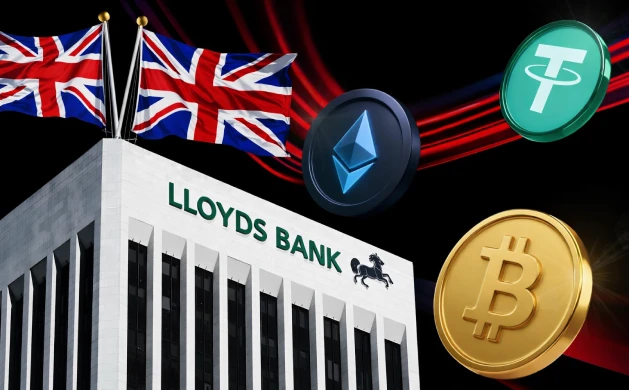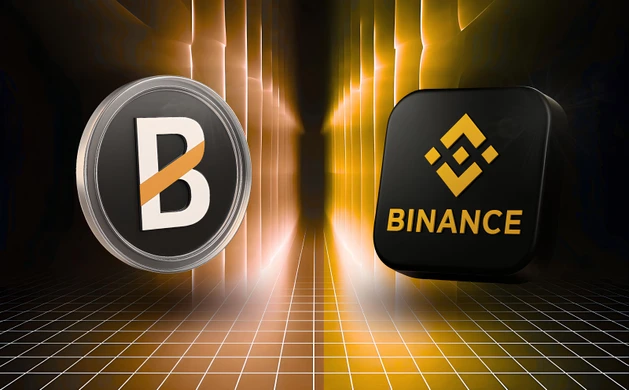Bybit vs Binance: Features, Futures & Fees
.webp)
Summary: Binance and Bybit are the two largest crypto exchanges globally by trading volume and user base. Binance serves over 280 million users with spot, futures, margin, and staking products. Bybit is used by more than 75 million traders, has expanded from derivatives into spot, options, copy trading, and Web3 services.
Both offer deep liquidity, rapid execution, and broad asset coverage, cementing their position at the top of the global market.
Bybit is the best choice due to its lower fees, extensive asset selection, superior user experience, global accessibility and diverse range of features.
Available Markets
2,100+ Cryptocurrencies (Spot, Futures & Options)
Deposit Methods
Bank Transfer, Debit Card, Credit Card, PayPal
Regulation & Licensing
Regulated by Tier-1 Authorities Worldwide.
Bybit vs Binance Overview
Bybit, launched in 2018, is ranked the second-largest crypto exchange on CoinMarketCap and is known for its deep liquidity, fast trade execution, and wide range of digital assets. It offers spot, derivatives, options, bot, and copy trading, along with staking and lending features.
Binance, founded in 2017, is the world’s largest exchange on CoinMarketCap, offering spot, futures, margin, and options trading alongside staking, savings, and an NFT marketplace. The platform also provides a native token, BNB Coin, used for fee discounts and ecosystem benefits.
Below is a comparison table of the two platforms, highlighting their fees, supported assets, features, and available countries.
Features |
Bybit |
Binance |
|---|---|---|
Launch Year |
2018 |
2017 |
Headquarters |
Dubai, UAE |
Global (various entities) |
Company Type |
Centralized Exchange |
Centralized Exchange |
Total Users |
75 Million+ |
280 Million+ |
Available Assets |
2,100+ Cryptocurrencies |
350+ Cryptocurrencies |
Trading Services |
Spot, Futures, Options, MT5 (Forex and CFDs) |
Spot, Futures, Margin, Options, NFTs |
Earn Products |
Staking, Dual Asset, Lending, Liquidity Mining |
Simple Earn, Launchpool, Staking, Dual Investment |
Native Token |
None |
BNB Coin |
Security |
Multi-sig wallets, Proof-of-Reserves, 2FA, Real-time monitoring |
Cold storage, 2FA, withdrawal whitelists, SAFU insurance fund |
Supported Countries |
180+ |
100+ |
Fees |
Spot: 0.1%, Futures: 0.02% maker, 0.055% taker |
Spot: 0.1%, Futures: 0.02% maker, 0.05% taker |
Bybit vs Binance Products
Bybit and Binance both go far beyond basic crypto trading, but they cater to different trading styles and risk appetites. Here’s a clear look at what each platform brings to the table.
Bybit Features
Bybit is built for experienced traders, with a strong emphasis on derivatives and advanced tools. Its key services include:
- Spot, Futures & Options Trading - A full trading suite for every strategy: spot markets for direct asset ownership, perpetual/futures for long or short exposure with margin, and USDC-margined options for defined-risk plays and hedging.
- Copy Trading (Classic & Pro) - Mirror top traders or run your own “master” account; risk controls, allocation settings, and leaderboards make it simple to follow proven approaches or monetise your track record.
- Trading Bots (Grid, DCA, Futures Grid, Martingale, Combo) - Automate entries and exits 24/7 with backtests and presets; tune grids, sizing, and leverage to suit trending, ranging, or mean-reversion conditions.
- Bybit Earn - A suite of earning tools, including flexible and fixed-term staking, dual-asset products, liquidity mining, lending and borrowing services, and yield programs, designed to help users grow assets passively.
- P2P & Fiat Gateway (Convert/Quick Buy) - Fund, purchase, or swap quickly between 75 fiat currencies using local payment methods or peer-to-peer settlement.
- Launchpad - Access vetted token launches and early listings with transparent rules, subscription windows, and allocation mechanics designed for fair distribution.
- Bybit Crypto Card - Spend crypto at merchants worldwide with automatic conversion at checkout, plus cashback tiers, APR perks, and VIP benefits for frequent users.
- Bybit Web3 - Trade on-chain without juggling gas tokens; track wallets, hunt new coins, and tap stable on-chain yields using your unified trading account balance.
- TradFi on MT5 (Forex & CFDs) - Trade major FX pairs, indices, metals, oil, and selected stocks from the same ecosystem, with tight spreads, tailored fees, up to 500× leverage, and 24/7 multilingual support.

Binance Features
As the largest exchange globally, Binance delivers a broad toolkit for beginners and pros alike:
- Spot Trading - Buy and sell crypto you own using market, limit, and stop orders, plus advanced tools for depth, charts, and execution control. It’s the foundation for building and rebalancing portfolios.
- Futures (USDⓈ-M & COIN-M) - Trade perpetual and delivery contracts with leverage, margined in stablecoins (USDⓈ-M) or in the underlying asset (COIN-M). Flexible margin tiers and risk controls help manage liquidation risk.
- Options - European-style contracts on major pairs for hedging or directional views with defined risk. Premium, strike, and expiry are transparent, making payoff profiles easy to model.
- Simple Earn (Flexible & Locked) - Put idle assets to work with flexible redemptions or higher-rate fixed terms. Rewards accrue in-kind, so token amounts grow while market prices still determine portfolio value.
- Dual Investment (Advanced Earn) - Set a target price and date to “sell high” or “buy low” while earning yield. Settlement depends on the target being reached, allowing income generation in varied conditions.
- Launchpool & Event Rewards (Airdrop/Megadrop) - Commit assets such as BNB or stablecoins to farm new tokens or join limited-time events. Clear windows, quotas, and distribution rules simplify participation.
- P2P Trading - Buy and sell directly with other users using escrow and local payment options. It’s useful for fiat on- and off-ramps where card or bank support is limited.
- Trading Bots - Automate strategies like Spot Grid, Futures Grid, DCA, Rebalancing, and Arbitrage. Presets, backtests, and a bot marketplace help match tools to market conditions and risk tolerance.
- Copy Trading - Follow lead traders with transparent metrics such as ROI, drawdown, and AUM. Allocation settings, caps, and cooling-off periods give followers practical risk management.
.webp)
Bybit vs Binance Security
Binance and Bybit both prioritize strong security, but their approaches differ. Binance employs multi-tiered protection with cold storage reserves, two-factor authentication, withdrawal whitelists, and its Secure Asset Fund for Users (SAFU), which acts as an insurance pool against breaches. It was hacked in 2019 for $40 million, but fully reimbursed users through SAFU.
Bybit also uses multi-signature cold wallets, proof-of-reserves audits, mandatory 2FA, and real-time monitoring to protect funds and accounts. In early 2025, it suffered a record $1.4 billion hack tied to a compromised wallet provider, yet restored reserves within days and reinforced security controls.
Both exchanges maintain industry-grade safeguards, giving traders confidence that assets and data are well protected.
Bybit vs Binance Futures Trading
Binance and Bybit both rank among the largest futures trading platforms, but they approach the market with slightly different strengths. Here’s a quick summary:
Bybit Futures
- Contract Types: Offers USDT-margined, USDC-margined, inverse perpetual, and dated futures with set expiration dates. Also supports European-style options.
- Leverage: Up to 200× on select contracts. Leverage and risk limits adjust dynamically based on position size and risk tiers.
- Fees: Generally start at 0.02% maker and -0.055% taker; can drop to zero for VIP traders.
- Tools: Offers dynamic risk limits, margin calculators, laddered liquidation, and strong transparency in margin adjustments.
- Available Markets: 612 futures markets.
.webp)
Binance Futures
- Contract Types: Supports USDⓈ-M (USDT/BUSD-margined) and COIN-M (crypto-settled) contracts, both perpetual and quarterly. Also offers USDT-settled options.
- Leverage: Offers up to 125× on core pairs like BTC/USDT, with lower max leverage on less liquid assets. Leverages decrease as position size grows.
- Fees: Starts at 0.02% maker and 0.05% taker. Paying with BNB yields an additional 10% discount. VIP tiers offer progressively lower rates.
- Tools: Provides robust charting, TradingView integration, adjustable UI, stop-loss/take-profit, trailing stops, and margin controls.
- Available Markets: 576 futures markets.

Bybit and Binance’s Supported Countries
Binance is available in over 100 countries worldwide, spanning Africa, the Americas, Asia-Pacific, Europe, and the Middle East. However, access is restricted in some regions, including the United States, where Binance.US serves local regulations, and a handful of sanctioned jurisdictions. The platform’s interface can be used in 28 languages.
Bybit has broader global availability, supporting over 180 countries and 15 languages. Yet, regulatory actions have led to bans or limitations in certain regions like the United States, the UK, Canada, Japan, Singapore, and the Philippines. In response, it has developed dedicated platforms for certain regions, including bybit.eu for Europe.
Bybit vs Binance Fees
Fees directly impact profitability, making them a key point of comparison when choosing between Bybit and Binance. Here’s how the two stack up.
Bybit Charges
Bybit’s fee schedule excels for heavy-duty derivatives users, and its VIP structure can push futures fees close to zero.
- Spot Trading Fees: Bybit charges a 0.1% for makers and takers. VIP tiers lower this with Supreme VIP users paying around 0.045% for takers and 0.03% for makers.
- Futures Trading Fees: Maker fees start at 0.02% and can drop to 0% for top-tier accounts. Taker fees begin at 0.055% and fall as low as 0.03% depending on VIP status.
- Options Trading Fees: Options carry a 0.02% maker fee and a 0.03% taker fee, both reduced further at higher VIP levels.
.webp)
Binance Charges
Binance’s fee schedule delivers broad appeal with solid base fees and a 25% discount using BNB Coin.
- Spot Trading Fees: Binance also charges 0.1% for makers and takers. Using BNB to pay reduces this by 25%, bringing the rate to 0.075%. VIP 9 members can reduce this further to 0.011% for makers and 0.023% for takers.
- Futures Trading Fees: Maker fees start at 0.02% and get as low as 0% and taker fees start at 0.05% and get to 0.0153%. Deeper discounts apply as traders climb through the VIP levels.
- Options Trading Fees: Binance options start at 0.024% for takers and makers, with reduced fees available to higher-tier traders.
.webp)
Is Bybit better than Binance?
Bybit and Binance are both leading exchanges, but each appeals to different traders. Bybit is stronger for derivatives, offering low futures and options fees, high leverage, and robust risk controls.
Binance, with the largest global user base, excels in liquidity, spot trading, and its broader ecosystem, including staking, NFTs, and BNB token benefits.
Bybit may be better for advanced derivatives traders seeking fee efficiency, while Binance is the more versatile choice for those wanting an all-in-one platform with unmatched market depth.
Final Thoughts
Choosing between Bybit and Binance comes down to trading priorities. Bybit is tailored for derivatives traders who value low fees, high leverage, and specialized tools, while Binance offers unmatched liquidity, broad asset coverage, and a full ecosystem of services beyond trading.
For active futures traders, Bybit may provide the edge, but for those seeking a versatile platform that covers every angle of crypto investing, Binance remains the stronger all-around choice.
Frequently asked questions
Can I trade crypto using local currency on Binance or Bybit?
Yes, Binance supports a wide range of fiat payment methods, including bank transfers, credit cards, and local services like UPI or PayPal via its P2P marketplace. Bybit also accepts fiat purchases but often relies on third-party gateways or P2P trading.
Do Binance and Bybit require KYC verification?
Yes. Both platforms require Know Your Customer (KYC) verification for full access to trading, withdrawals, and earning products, though limits may apply for unverified accounts.
Can I use Binance or Bybit in the United States?
Binance operates through a separate platform, Binance.US, which is available to U.S. residents but with fewer features. Bybit does not currently allow users in the U.S. due to regulatory restrictions.
Which platform offers better earning opportunities outside of trading?
Binance provides Simple Earn, Launchpool, and staking with broad asset coverage, while Bybit offers Earn products like Dual Asset, liquidity mining, and lending options designed for higher-yield opportunities.

Written by
Emily Shin
Research Analyst
Emily is passionate about Web 3 and has dedicated her writing to exploring decentralized finance, NFTs, GameFi, and the broader crypto culture. She excels at breaking down the complexities of these cutting-edge technologies, providing readers with clear and insightful explanations of their transformative power.









